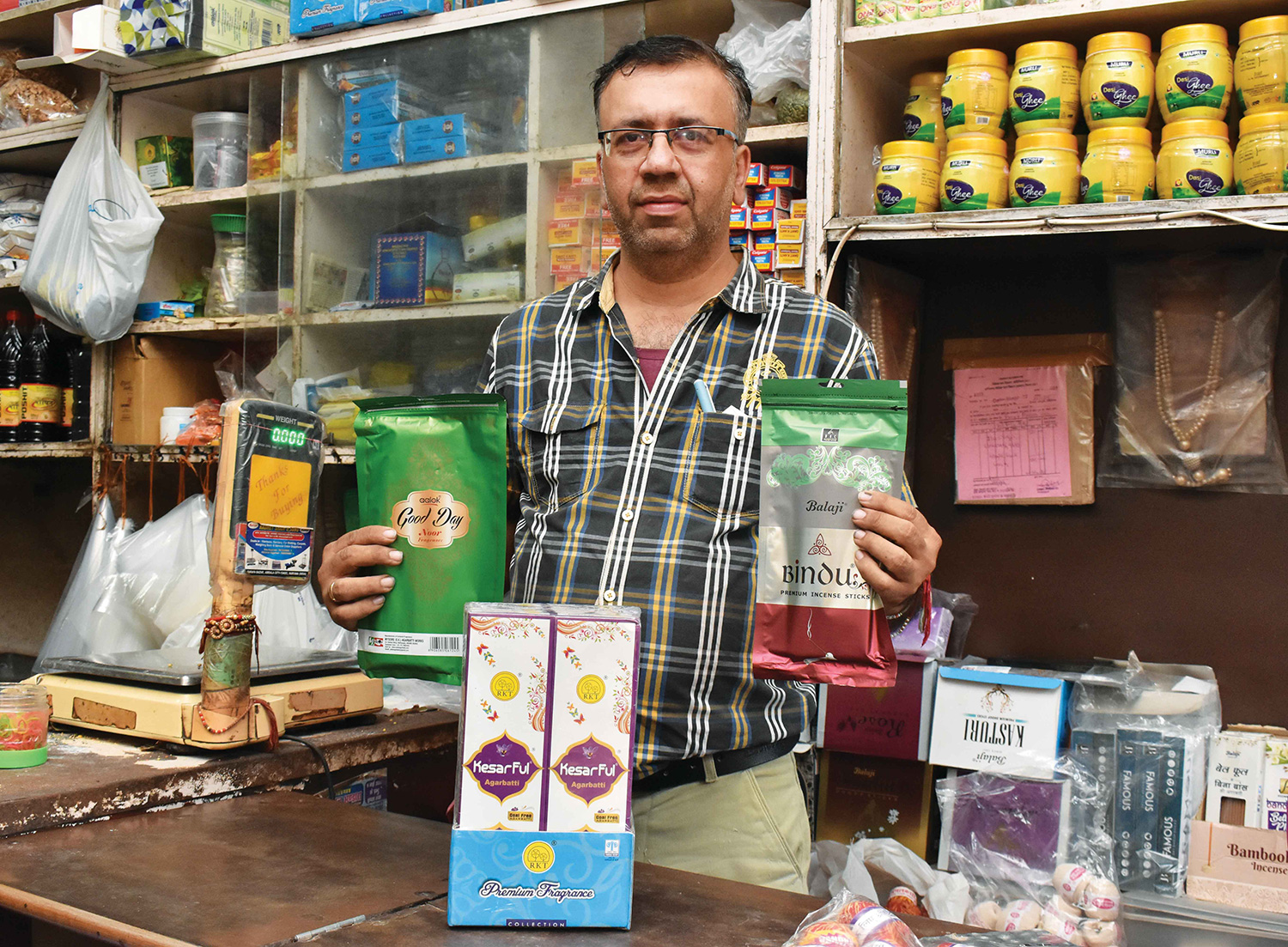



Mr Rakesh, head of the Punjab Provision Store, discussed the thriving incense market in Ambala during an interview with Sugandh India. He revealed that over 60% of the market is dedicated to agarbattis, while dhoop accounts for the rest. Established in 1958, Punjab Provision Store focused on grocery items. However, the family business diversified into agarbatti and dhoop some two decades ago. They collaborated with brands such as Shiv Shakti, Raj Lakshmi Poshaak, and Maratha. The store now supplies a wide range of products across Ambala, Kalkaji, and Pinjore, and partners with numerous companies from Indore, Gujarat, and Delhi. Key brands include Balaji, Raj Lakshmi, B. V. Aswathiah& Bros, GT Group, Aalok, BIC, and RKT. Rakesh highlighted that the firm principally engages, in the distribution of agarbatti and dhoop-based products, alongside retail sales directly from their store. The business’s robust presence reflects its significant role in the local market.
Mr Rakesh from Punjab Provision Store highlighted changing consumer preferences in the local market. He observed that products with a maximum retail price (MRP) of ₹10 are becoming increasingly unpopular, with consumers now favouring items priced at ₹20 and ₹50. Furthermore, there is a growing demand for jumbo packs available at ₹100. Rakesh pointed out that popular brands of incense sticks include Dev Darshan, Balaji, Cycle Pure, Z Black, GT, RKT, BIC, Aalok, and Mysore SK brand. For dhoop, products priced at ₹10 and ₹20 are the top sellers, particularly those from Dev Darshan and Manthan. Additionally, several Delhi-based brands, such as Bhavna Sugandh, Grah Shanti, and God Gift, are also gaining traction in the dhoop market. He noted that Balaji products are available at MRPs of ₹20 and ₹50, while the same brands are also featured in dry stick formats. The most sought-after varieties in Ambala are sandalwood, rose, and guggal, reflecting evolving consumer preferences.
Mr Rakesh shared valuable insights into the local incense market, revealing that brands such as Cycle Pure, GT, and Pioneer dominate the sambrani cup segment. Notably, the Saraswati brand leads the camphor category, commanding an impressive 70% of the market share in Ambala, with the remaining 30% occupied by various other products. Rakesh noted that brand loyalty plays a significant role in purchasing decisions, with about 50% of customers choosing products based solely on brand recognition. On average, each customer spends up to ₹100 per month on dhoop and incense stick products, indicating a steady demand in this sector. However, he also acknowledged the challenges faced by distributors in the highly competitive market. Rakesh emphasised that sustained effort and adaptability are essential for success in this dynamic industry.
Venue : Mumbai
Date 12th and 13th April 2025